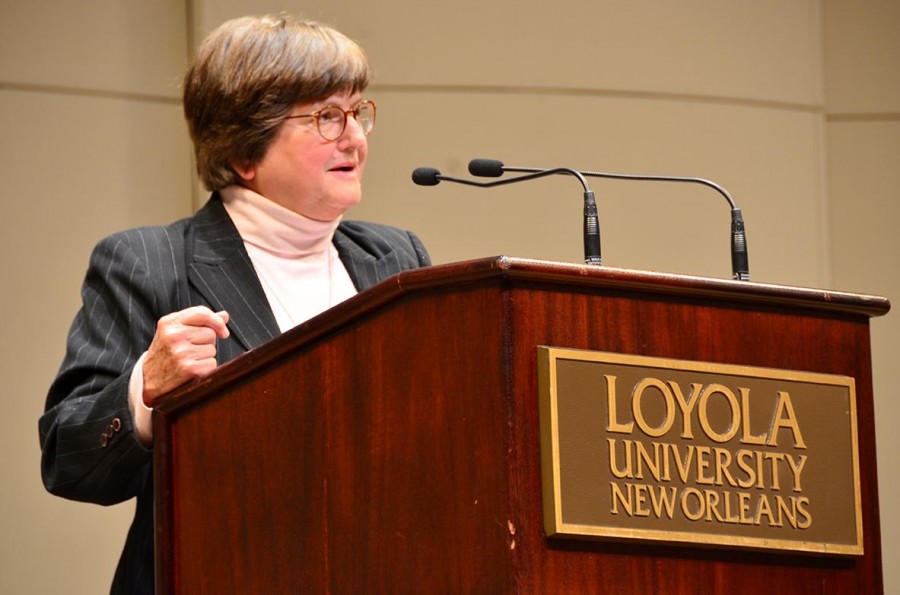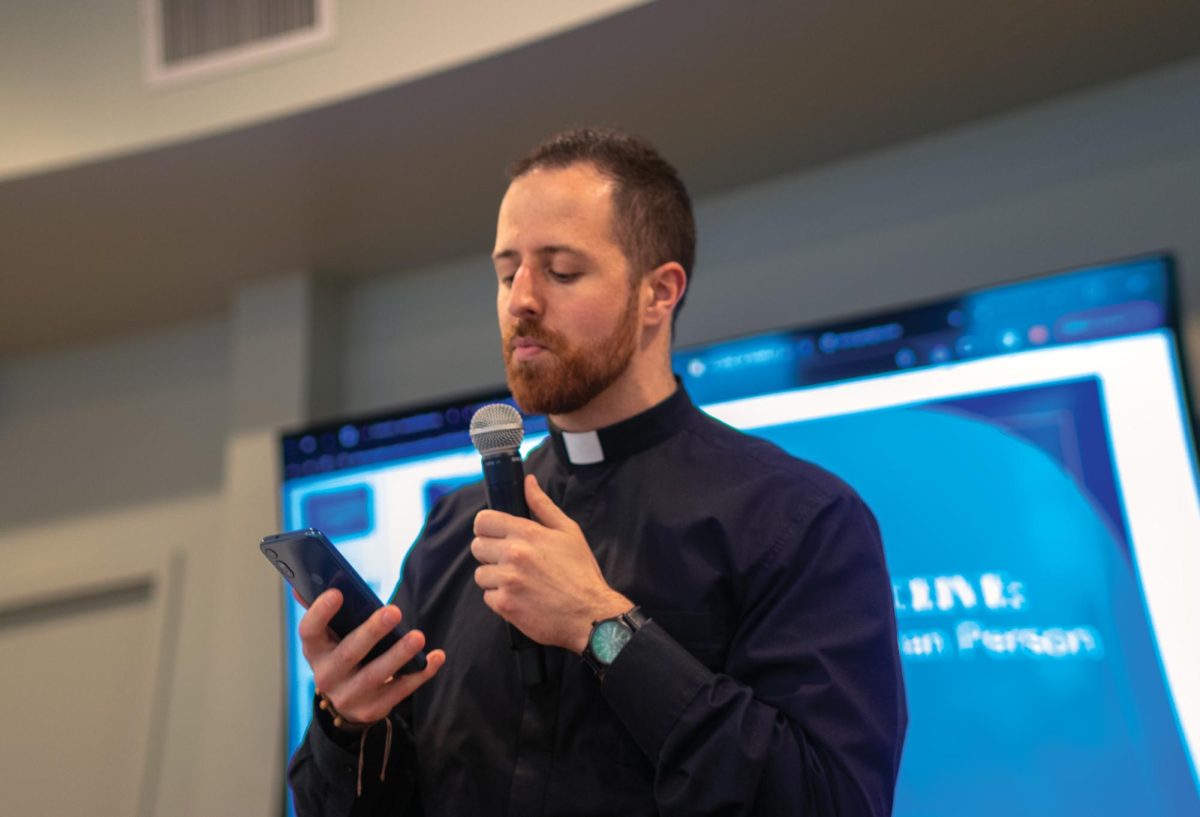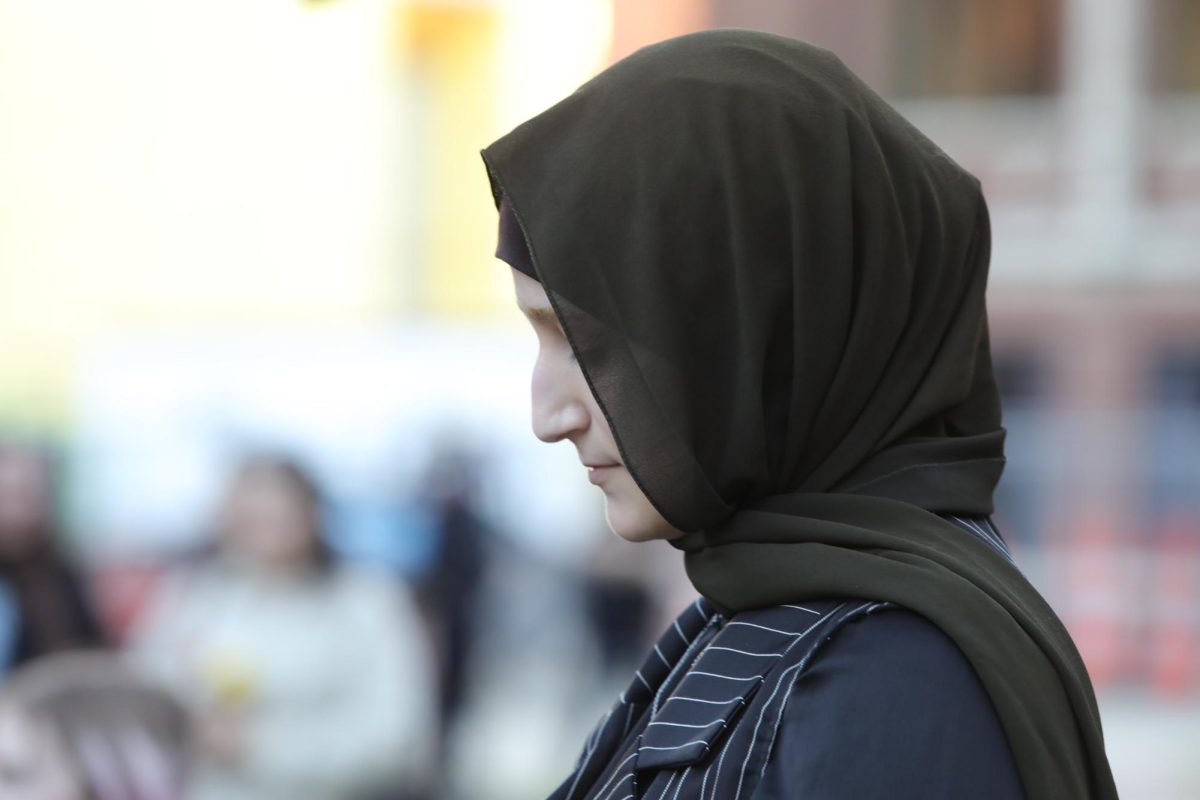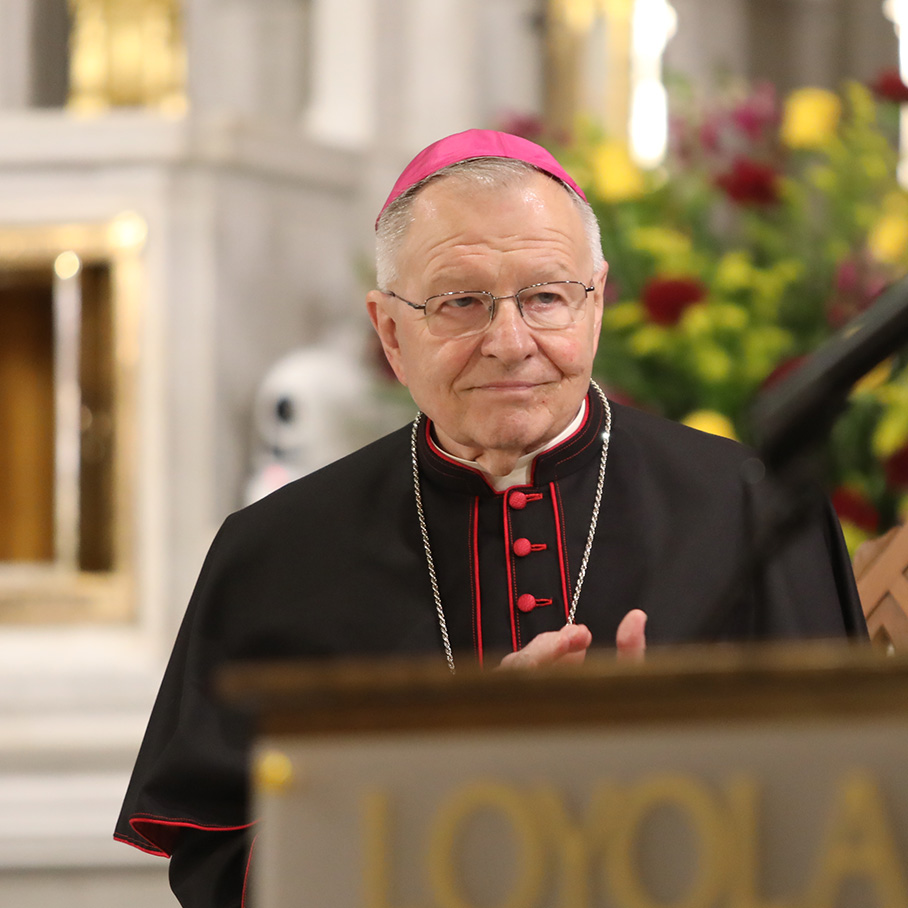Sixty-nine-year-old Christopher Sepulvado is to be executed in Louisiana on Ash Wednesday.
According to the Louisiana Department of Corrections, Sepulvado murdered his six-year-old stepson by beating him with a screwdriver and then submerging him in scalding hot water. In 1993 a Desoto Parish jury sent Sepulvado to death row for his crimes.
On Tuesday, Jan. 22, the Loyola Jesuit Social Research Institute cosponsored the appearance of Helen Prejean, a sister with the Congregation of St. Joseph. Prejean is an activist against the death penalty as capital punishment and has written several books on the controversial subject, including an award winning book-to-film adaptation.
“They killed a man with fire one day. They strapped him into a chair and pumped electricity into his body until he was dead,” Helen Prejean said as she read the prelude from her book, “Dead Man Walking”. “I cannot walk away from this issue. I owe it to the human beings I have accompanied to death to tell the story to the people, to wake up the people.”
“If you say you are for, or against, the death penalty, people don’t really think about it enough – unless it touches them personally,” Sister Margret Maggio, Prejean’s administrative assistant said. “This is not just about punishment. It’s also about getting people rehabilitated.”
Political science junior Milan Ray discussed his feelings about the death penalty before Prejean’s lecture.
“I was pretty apathetic about the death penalty,” Ray said. “I think there is something to be said about human kindness, and sticking up for people who may not even be innocent.”
Prejean’s speech left students to reflect about the meaning of death as capital punishment.
Terri Zehyoue, a criminal justice sophomore, said Prejean’s message left her thinking about true justice in terms of the crime and the capital punishment’s effect on families involved.
“Sister Prejean talked about the death penalty not really letting the victims family heal, I thought maybe there should be better way to help them find peace,” Zehyoue said.
Gary Clemmons, the director of the Capitol Post Conviction Project of Louisiana and a legal representative for Sepulvado, stood at the podium before Prejean spoke on Tuesday night.
“We should not be judged by the worst five minutes of our life, and I think that sums up the situation for Chris and his crime,” Clemmons said.
Students and academics alike reflect upon this controversial issue’s religious, economic and political implications.
Based in Houston, Texas, Dudley Sharp has tried to spread his own opinions about the death penalty in emails to Loyola students and faculty. Sharp argues that the death penalty can save lives by placing fear into possible offenders and provides the guarantee that the offender will never hurt anyone again.
“To say that the death penalty saves lives is a profound contradiction,” Prejean said, in response to Sharp’s assertions.
While the debate saunters on, Prejean hopes to change the fates of men and women on death row by encouraging people of all ages to reach out to the prisoners and actively push towards the end of the death penalty.
“College students can be pen pals to prisoners, they can vote for people who are going to do something about the justice system,” Maggio said. “These are going to be intelligent people and future leaders, so they are going to need to be informed and have to learn how to make this a better system.”
Jessica DeBold can be reached at [email protected]








